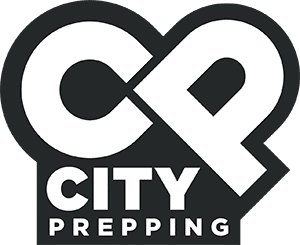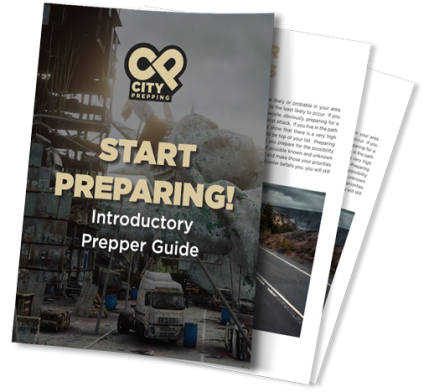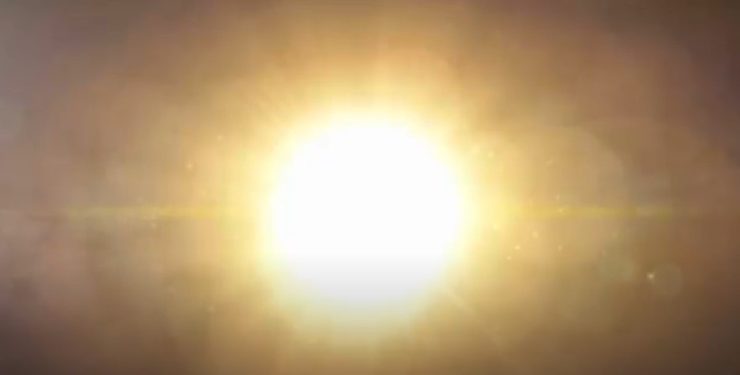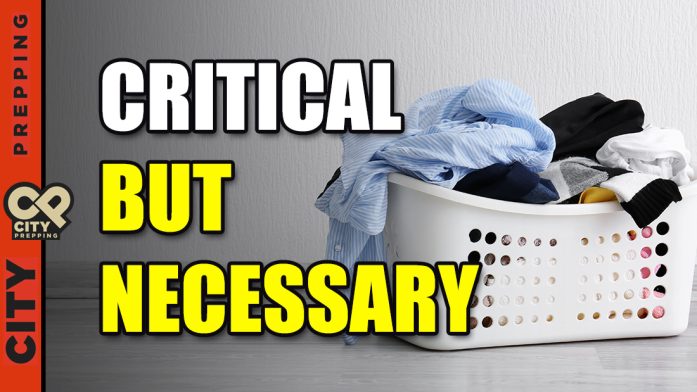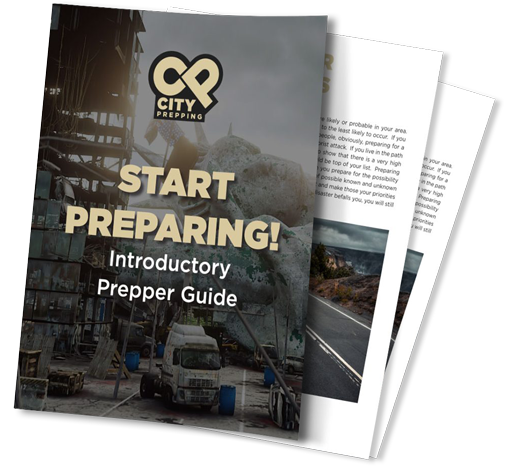Without a doubt, we live in an unprecedented time in our nation’s history. 2020 will be a year in history books that will assuredly show a time of upheaval, uncertainty, and hopefully change for the better. But at the moment, there are issues we’re facing that we should all be aware of. With protestors in the street during the day and looters and arsonists in the streets at night; Police, National Guard, and military forces deployed to protect businesses and buildings; Record unemployment, a pandemic, and growing food shortages creating desperation in a population; New and increasingly more militant faction groups springing-up every day; The U.S. government referring to its citizens as enemy combatants; Racial tensions boiling over; Citizens arming themselves in an attempt to protect themselves and their property; Armed militias seizing capital buildings and threatening legislators; Neighbor turning on neighbor; the question has to be asked: is the civil democratic society* of the United States on the brink of collapse? Is the America that our founding father Alexander Hamilton referred to as the “Grand Experiment” about to conclude by crossing over into a point of no return?
 America isn’t a stranger to unrest. Over its 244 year history, it has seen civil unrest, world wars, civil wars, systemic racism against many races, and its full share of natural disasters. The challenges of the nation’s history are really too many to name. Each trial and tribulation has tested the country’s resilience, and each time America has emerged stronger– bruised, bumped, and battered– but still intact, still one nation.
America isn’t a stranger to unrest. Over its 244 year history, it has seen civil unrest, world wars, civil wars, systemic racism against many races, and its full share of natural disasters. The challenges of the nation’s history are really too many to name. Each trial and tribulation has tested the country’s resilience, and each time America has emerged stronger– bruised, bumped, and battered– but still intact, still one nation.
In this video, we will examine the 5 warning signs we should be paying attention to in the United States which are “testing whether [this] nation or any nation so conceived and so dedicated, can long endure.” Are we passing the tipping point, or will we find our way from the darkness of division to the light of unity around our common goals and values?
Divisions without calls for unity
Divisions without calls for unity indicate that greater conflicts are on the horizon. While America has seen its share of conflicts and divisions in the past–the worst, of course, being the Civil War–it has proven itself to be resilient, capable of healing itself over the long haul. Wounds heal with time, however, and the time for news of injustices, breaches of law, or even acts which might be deemed unAmerican took weeks to travel to the small town in America in the 18th and 19th centuries. Divisions may have festered over several decades, as in the conflicts between the North and the South before and after the Civil War, however, the citizenry was harder to mobilize and less driven to personal offense and outrage because of the speed at which information spread.
In contrast, today’s real-time posting and viewing of scenes of police brutality or peaceful protests turned to opportunistic looters, incites wide scale, instant outrage among the population. While a call to arms may have taken weeks or months in the 1800s, we see groups mobilizing efforts in a matter of hours and coordinating their efforts, directing their members via the same electronic connectivity.
 This lightning fire of our connectivity is fueled with the cynicism and outrage of many. Where we might have had somewhat benign discussions about political differences of opinion at a family barbeque before, the anonymity of the internet emboldens people to express any ugly thought they may have. To see this in real-time, simply view any comments thread for any news article on the internet. Though I’m not espousing any particular political idealogy or proposing any solution other than to prepare yourself, even the comments thread of this blog will likely demonstrate the deep divisions this country faces.
This lightning fire of our connectivity is fueled with the cynicism and outrage of many. Where we might have had somewhat benign discussions about political differences of opinion at a family barbeque before, the anonymity of the internet emboldens people to express any ugly thought they may have. To see this in real-time, simply view any comments thread for any news article on the internet. Though I’m not espousing any particular political idealogy or proposing any solution other than to prepare yourself, even the comments thread of this blog will likely demonstrate the deep divisions this country faces.
In the past, despite the divisions, Americans have been able to find their way to a common ground. There has always been a shared voice calling for unity that was louder than the divisive voices. The hatred of oppression or authoritarian powers overseas or the communist threat around the world or whatever common enemy or common aspiration we faced, united us in a common voice. In the current climate, however, there are few calls for unity and much stoking of the fires that divide us further. The Insurrection Act of 1807 and the Posse Comitatus Act of 1878 have the years associated with them because they were established out of a need in that year. Will there be a peace restoring act of 2020? Out of the unity of Congress, these acts were passed to restore a sense of peace, but with a divided Congress and bellicose President, are we now too divided to find a common unity?
Deepening divisions with parties in opposition and not seeking a unifying dialogue is the first sign that our democracy may be teetering on the edge.
Potential economic collapse
The second sign that the U.S. democratic society may be on the verge of collapse is the potential economic collapse that we are facing. The global GDP has significantly contracted. Markets and borders have closed. Some farmers find themselves unable to bring their products to market. Manufacturers around the globe have scaled back their production altogether. A relentless pandemic has evaporated consumer confidence in BTIs — Big Ticket Items– indicating a deepening recession, hyperinflation, and a looming economic depression.

As the Federal Reserve runs out of mechanisms to control the economic slide and the markets reel to the point of inverting themselves, as we saw with oil just two months ago, where barrels dropped to negative numbers, we have to wonder if we have the leadership in government or industry to lead us back to economic prosperity.
Other countries that have experienced such a decline have slid into oligarchies like the former Soviet Union or complete chaos like Venezuela. Democracies, however, have for the most part been able to correct themselves. The list of failed democracies is confined to a handful of startups that never took root or countries that morphed into autocratic rule. Never has a country with as long of a democratic history and as much collective power as America failed. The desperation of an economic collapse and a suffering population could move America to a more autocratic rule, could clip the wings of democracy, and clear a path for the destruction of the underpinnings of our democracy.
A deepening economic crisis in America could bring us closer to the brink of collapse.
Economic inequality gap growing by the day
The third significant sign to watch for is a widening of the economic inequality gap. While millions of unemployed Americans lose their comforts and watch the millionaires and billionaires of the world continue to increase their profits, could the disparity foment a revolution?
Ray Dalio, the founder of Bridgewater Associates and worth 17 billion dollars, ominously warns that there’s about to be an uprising in America, spurred by the widening wealth gap. What keeps him up at night is knowing that the rich and elite fare the worst when the pitchforks come out. He cites shrinking wages, the income/wealth/opportunity gap widening, and Americans earning less and dying younger as the three main reasons violent revolution is, at least, imaginable. He writes, “Disparity in wealth, especially when accompanied by the disparity in values, leads to increasing conflict and, in the government, that manifests itself in the form of populism of the left and populism of the right and often in revolutions of one sort or another.”
He indicates that the staggering gap between the haves and the have-nots is 100 percent not at all due to “evil rich people doing bad things to poor people” or “lazy poor people and bureaucratic inefficiencies”, but “how the current capitalist system is now working.”
An increasingly desperate population along with a widening perception of inequality could directly stoke the fires of revolution and quickly dismantle a fragile democracy.
Food and shelter insecurities on the horizon
Food and shelter insecurities further exacerbate the growing threats to America’s democratic structure. The French philosopher Jean-Jacques Rousseau, who influenced some of the founding

fathers, and lived just short of being a witness to both the French and American revolutions, famously said about the tensions leading up to those events that “When the poor have nothing more to eat, they will eat the rich!”
With food and housing insecurities creeping like a specter over the economy, Americans will turn in two directions– self-reliance or self-opportunity. Self-reliance is the prepper’s path, but the majority of people, sadly, will seek to obtain what they need to survive by force and guile. We’ve already seen this in the opportunistic looting which has accompanied the otherwise peaceful protests.
As governments seek to protect businesses and to protect rich benefactors, authoritarian martial law declarations will further drive a wedge between citizens and government. As Americans increasingly perceive their country as protecting one class of people at the expense of the general population, again, democracy and its freedoms can unravel. So the desperation of Americans for secure sources of food and shelter is another warning sign to gauge whether our society is on the brink of collapse.
Will the election in November even happen?
Perhaps the biggest indicator in the future, however, is the November 2020 elections. With a President already casting dispersions on the integrity of elections, mail-in-ballots, and voter fraud, will he accept defeat if the opposing party is elected? With voter suppression and gerrymandering efforts seeking to override the will of the people gripped in an economic depression and a compounding pandemic, will American citizens accept a second term? Regardless of the outcome of the election, there is, at least, the possibility that it won’t happen at all.
 If the pandemic worsens, civil unrest increases, or large scale voter fraud is implied or proven, the election could be postponed or canceled at a state or federal level. This would immediately, because of the Twentieth Amendment, cause a Constitutional crisis. As Congress, the President, and the judicial branches struggled to find a solution to that Constitutional crisis, they would be forced to work together while a nation and a world remained uncertain as to who was actually in charge anymore. So, again, protests, riots, looting, and military intervention could supplant democracy and bring our democratic society to a point of collapse.
If the pandemic worsens, civil unrest increases, or large scale voter fraud is implied or proven, the election could be postponed or canceled at a state or federal level. This would immediately, because of the Twentieth Amendment, cause a Constitutional crisis. As Congress, the President, and the judicial branches struggled to find a solution to that Constitutional crisis, they would be forced to work together while a nation and a world remained uncertain as to who was actually in charge anymore. So, again, protests, riots, looting, and military intervention could supplant democracy and bring our democratic society to a point of collapse.
Whether our democracy will survive an extended period of tribulation remains to be seen. It has before, and it may well again, but the pressures of a desperate populace with immediate, electric communications and flaring opinions, and the lack of a unifying set of voices, deepen the divisions. Potential economic collapse looming in the forecasts, increasing food and shelter insecurities, and a widening economic inequality chafing the populace perceptions, can all lead to greater civil unrest. And with an election 5 months away that is already proving to be the possibly most contested, challenged, and disputed in our country’s history, can our great nation’s democratic society endure. Watch for these signs and insulate yourself by becoming more self-reliant. Prepping is about increasing your self-reliance. Governments do survive. Some governments do change. As Abraham Lincoln said, “This country, with its institutions, belongs to the people who inhabit it.” It’s also our responsibility, then too, to do everything in our power to preserve it.
If you found this blog informative and helpful, please feel free to like and share it with your friends, family, and community. If you have any comments or anything you would like to share, please feel free to leave a comment in the section below. I do read many of the comments and respond to them when I am able to.
As always, please stay safe out there.
*A Constitutional Republic is a form of democracy. “The United States is not a direct democracy, in the sense of a country in which laws (and other government decisions) are made predominantly by majority vote. Some lawmaking is done this way, on the state and local levels, but it’s only a tiny fraction of all lawmaking. But we are a representative democracy, which is a form of democracy.”
Volokh, E. (2015, May 13). Opinion | Is the United States of America a republic or a democracy? Retrieved June 12, 2020, from https://www.washingtonpost.com/news/volokh-conspiracy/wp/2015/05/13/is-the-united-states-of-america-a-republic-or-a-democracy/
